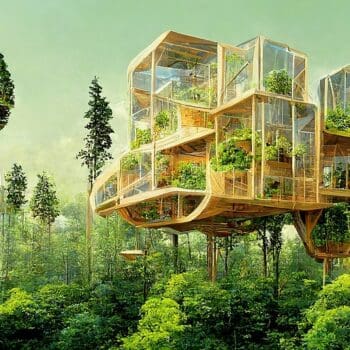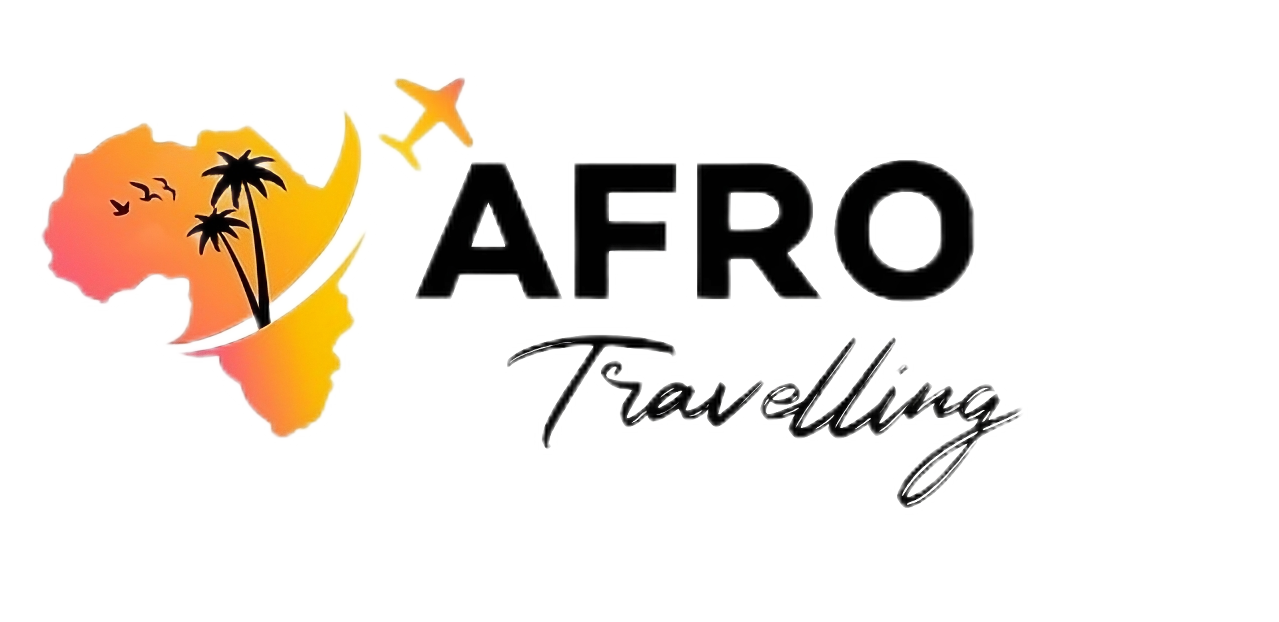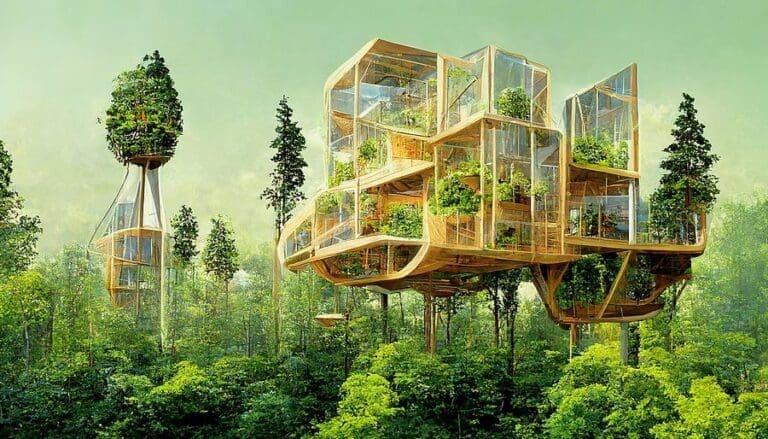 Timber, potted vegetation and “inexperienced partitions” is probably not typical types of inside design, however with rising demand for sustainable, eco-friendly hospitality, motels are upping their efforts to include “inexperienced atmospherics” into their indoor areas. While folks’s behaviour is thought to be formed by their bodily environment, the precise results of residing vegetation, scent, air high quality, pure gentle and inexperienced areas should not but identified. Specializing in the posh resort sector, Professor Jin-Soo Lee of the Faculty of Lodge and Tourism Administration (SHTM) at The Hong Kong Polytechnic College and co-researchers explored the affect of varied dimensions of inexperienced atmospherics on the well-being and behavioural intentions of resort visitors and workers. Their findings might assist luxurious resort managers ship a extra pleasurable expertise for visitors and take higher care of their workers whereas additionally decreasing their environmental influence.
Timber, potted vegetation and “inexperienced partitions” is probably not typical types of inside design, however with rising demand for sustainable, eco-friendly hospitality, motels are upping their efforts to include “inexperienced atmospherics” into their indoor areas. While folks’s behaviour is thought to be formed by their bodily environment, the precise results of residing vegetation, scent, air high quality, pure gentle and inexperienced areas should not but identified. Specializing in the posh resort sector, Professor Jin-Soo Lee of the Faculty of Lodge and Tourism Administration (SHTM) at The Hong Kong Polytechnic College and co-researchers explored the affect of varied dimensions of inexperienced atmospherics on the well-being and behavioural intentions of resort visitors and workers. Their findings might assist luxurious resort managers ship a extra pleasurable expertise for visitors and take higher care of their workers whereas additionally decreasing their environmental influence.
The resort sector is a serious contributor to air pollution, waste and environmental injury. Accommodations not solely generate giant volumes of greenhouse gases, gray water and meals waste but additionally devour substantial pure assets. Because the tourism trade continues to develop, so does the necessity to present extra eco-friendly lodging for travellers. Rising to this problem, many motels are making strikes to minimise their environmental influence by implementing inexperienced initiatives, which concurrently meet the rising buyer demand for sustainable hospitality. More and more, the researchers observe, “people embrace sustainability as not solely a design choice, but additionally an ethical code”.
“Inexperienced atmospherics” describes a wholesome, eco-friendly bodily atmosphere. Accommodations eager to foster inexperienced atmospherics may furnish their indoor areas with residing timber, potted vegetation, inexperienced relaxation areas, contemporary air, pure gentle and good air flow. “Guests and workers in a resort are due to this fact interacting with varied parts of its inexperienced indoor atmospherics”, say the researchers. Based on earlier research, interacting with inexperienced and wholesome atmospherics can increase visitors’ optimistic experiences of motels. Indoor atmospherics might affect cognitive, emotional and bodily responses in addition to behaviours resembling retention, loyalty and word-of-mouth intention.
Based on the researchers, the useful results of inexperienced atmospherics might be defined by the “stimulus organism response concept”, which fashioned the backdrop of this analysis. This concept holds that environmental attributes act as stimuli that affect an individual’s psychological state, which in flip impacts their behaviour. “Specifically,” say the authors, “environmental psychologists argue that optimistic behaviours derive from people’ well-being and happiness by means of optimistic experiences”. Accordingly, inexperienced indoor atmospherics are prone to foster optimistic responses and behaviours in resort visitors.
In trendy society, the prospect to attach with nature is often joyfully welcomed, with intuitive hyperlinks to psychological well-being. In motels, inexperienced atmospherics are conducive to a optimistic way of thinking that ends in a higher sense of well-being. Psychological well-being is “an important idea for each patrons and employees”, emphasise the authors. For example, workers are extra keen to work in locations that promote their well-being. The authors hypothesised that inexperienced atmospherics in motels improve the psychological well-being of each resort visitors and workers.
In flip, psychological well-being is thought to have an effect on choice making and behavior. Analysis has discovered that psychological well-being considerably predicts resort workers’ inexperienced behaviour. “Psychological wellbeing brings various outcomes which can be useful to the corporate”, say the authors. These outcomes can embody an enhanced sense of belonging, loyalty and buy/advice intentions and behaviours. Constructing on these findings, the researchers aimed to find out how psychological well-being impacts the behavioural intentions of resort visitors and workers.
Lastly, the researchers thought of the function of “place dependence”, outlined as a way of deep reference to areas that meet one’s purposeful and emotional wants. “Travellers who really feel snug and accustomed to a spot are prone to have sturdy place dependence or attachment and to revisit the place”, clarify the authors. Psychological well-being has been discovered to find out place dependence, which might in flip have an effect on prospects’ buy intentions, loyalty, and different behaviours. To discover these connections in higher depth, the researchers investigated the affect of psychological well-being on place dependence and the way place dependence can in flip have an effect on behavioural intentions within the context of inexperienced atmospherics in motels.
In a sublime two-phase experiment, the researchers explored the nuanced relationships between parts of inexperienced atmospherics and the well-being, place dependence and behavioural intentions of resort workers and visitors. In Section 1, focus group discussions with 5 resort visitors, 5 resort workers and three hospitality administration professors revealed seven necessary attributes of inexperienced indoor atmospherics, which have been assigned to a few main classes: inexperienced ambient situations (air high quality, scent, pure gentle), inexperienced gadgets (e.g. residing vegetation) and inexperienced areas/areas (e.g. inexperienced relaxation areas).
Section 2 was a area survey performed at luxurious motels in South Korean cities. Over 10 days, 253 resort visitors with a imply age of 35 have been recruited from totally different indoor areas of their motels to finish a questionnaire. Knowledge from 247 workers, aged 32.5 on common, have been additionally collected on website from the identical luxurious motels. All the members accomplished a questionnaire that measured their psychological well-being, place dependence and behavioural intentions.
A key novel contribution of this examine lies in its categorisation of the attributes of inexperienced indoor atmospherics in luxurious motels into inexperienced ambient situations, inexperienced gadgets and inexperienced areas/areas. The researchers discovered that these constructs influenced the formation of psychological well-being, place dependence and behavioural intentions amongst resort visitors and resort workers. Supporting stimulus organism response concept, this discovering highlights “the function of inexperienced indoor atmospherics in inducing visitors’ and workers’ psychological well-being notion”, say the researchers, “which results in elevated place dependence and behavioural intentions”.
Psychological well-being and place dependence not solely immediately triggered behavioural intentions but additionally not directly influenced behavioural intentions by maximising the affect of inexperienced indoor atmospherics. Via focused efforts to reinforce psychological well-being and place dependence, say the authors, motels might optimise their use of inexperienced ambient situations, inexperienced gadgets and inexperienced areas/areas. “This can fortify the impact of those ideas in constructing visitor and worker intentions to stay with the resort, say optimistic issues concerning the resort, and have loyalty to the resort.”
The ability of inexperienced atmospherics to make visitors really feel wholesome and blissful, and the pivotal function of psychological well-being, highlights a novel alternative for motels. “Providing psychological well-being to resort visitors and resort workers is a crucial step for the elevated intentions to stay with the resort, say optimistic issues concerning the resort, and be loyal to the resort”, make clear the authors. Managers might diversify their efforts to reinforce visitors’ and workers’ well-being by, for instance, enhancing social interactions for visitors by means of leisure facility reductions and strengthening social relationships between colleagues by means of group constructing actions.
The ultimate noteworthy discovering is that of the three dimensions of inexperienced atmospherics, inexperienced ambient situations most strongly influenced visitors’ well-being, whereas these three dimensions had roughly equal results on the psychological well-being of workers. “It’s thus important for luxurious resort proprietors to focus extra on fortifying the ambient situations inside the resort and its efficiency so as to attain a stronger degree of psychological well-being amongst their visitors”, observe the researchers. Moreover, at an analogous degree of psychological well-being, visitors extra actively constructed behavioural intentions than workers did.
This insightful examine identifies psychological well-being as a key driver of the affect of inexperienced atmospherics in motels on behavioural intentions, significantly these of visitors. The findings additionally point out a transparent must tailor methods for selling inexperienced atmospherics to totally different teams. “To successfully improve psychological well-being and behavioural intentions”, conclude the authors, “luxurious resort proprietors ought to develop and use ways which can be totally different for visitors and for workers”. The insights afforded by this examine even have thrilling implications for creating inexperienced atmospherics in different indoor service settings, resembling eating places and cruise ships.
In regards to the authors
Han, Heesup, Lee, Jin-Soo, and Koo, Bonhak (2021). Impression of Inexperienced Atmospherics on Visitor and Worker Properly-Being Response, Place Dependence, and Conduct within the Luxurious Lodge Sector. Journal of Sustainable Tourism, Vol. 29, Difficulty 10, pp. 1613-1634.


